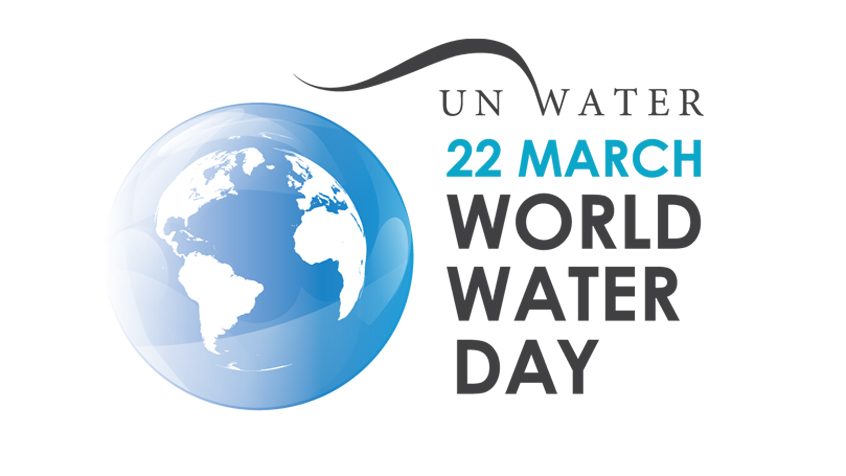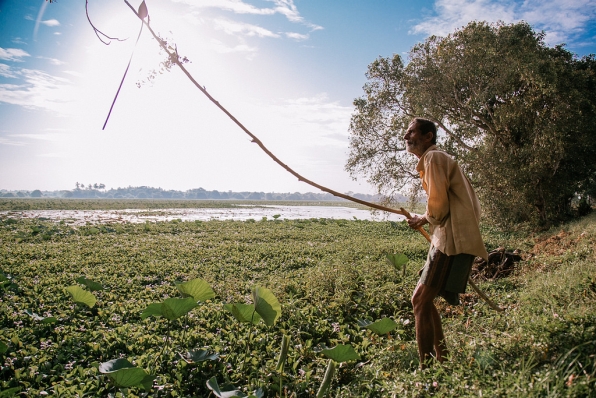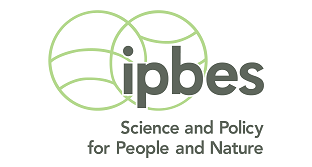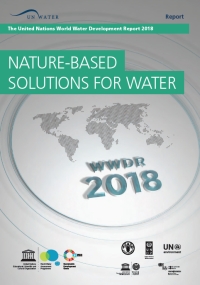
As the recent water shortage in Cape Town, South Africa, has shown so graphically, a changing climate together with economic growth and rapid urban development are placing unprecedented stress on water resources. To achieve enduring water security requires diverse approaches that rely on nature’s bounty as well as human ingenuity.
The “nature for water” theme of this year’s World Water Day is a clear call to pursue the multiple possibilities that well-managed ecosystems offer for harnessing the benefits of water, while simultaneously curbing its destructive potential. Based on years of pioneering research, the International Water Management Institute (IWMI) is well prepared to support such efforts and joins many others today in calling attention to the value of nature-based solutions for addressing the enormous water challenges of our time.

This is among the central messages of a recent article in the UN Chronicle by IWMI Director General Claudia Sadoff, which examines particularly how people in high-risk areas of Africa and Asia can come to grips with water security in the face of climate change impacts. An opinion article by IWMI researchers in Thomson Reuters Foundation News elaborates on the vital contribution that natural infrastructure (including wetlands, floodplains and watersheds) makes to livelihoods and sustainable economic growth. An IWMI opinion piece in Devex highlights a new approach for guiding investment in solar-powered irrigation, which will foster sustainable management of groundwater, another key form of natural capital on which water-scarce communities rely.
Most of IWMI’s work on nature-based solutions forms part of the CGIAR Research Program on Water, Landscapes and Ecosystems (WLE), which IWMI leads. Along with WLE, IWMI communicates about nature-based solutions actively, as you will see from the accompanying links to blog posts, publications, and social media reporting.
UN Chronicle: Coming to grips with water security in the face of climate change
In a landmark study published a decade ago, the International Water Management Institute (IWMI) suggested that under likely scenarios the world’s freshwater supplies should be adequate to meet future demands from agriculture, industry and other sectors. A lot has happened since then that makes it difficult today to frame this essentially accurate conclusion in such optimistic terms. It is clear now that, without significant improvement in water management, we can no longer assure sustainable development in the face of climate change and related pressures.
Regional assessments of biodiversity and ecosystems services
 The Intergovernmental Sciency-Policy Platform on Biodiversity and Ecosystem Services (IPBES) promotes the protection and sustainable use of these vital resources by providing decision-makers with objective scientific assessments together with tools and methods. On March 23, IPBES will present four new regional assessments on biodiversity and ecosystem services to its 6th Plenary Session, held in Medellín, Colombia. IWMI and WLE scientists contributed importantly to two of these assessments – serving as co-chair of the one for Asia and the Pacific and figuring as co-author of a chapter in the one for Africa. These will constitute the most significant reports on ecosystems and development since publication of the Millennium Ecosystem Assessment nearly 20 years ago.
The Intergovernmental Sciency-Policy Platform on Biodiversity and Ecosystem Services (IPBES) promotes the protection and sustainable use of these vital resources by providing decision-makers with objective scientific assessments together with tools and methods. On March 23, IPBES will present four new regional assessments on biodiversity and ecosystem services to its 6th Plenary Session, held in Medellín, Colombia. IWMI and WLE scientists contributed importantly to two of these assessments – serving as co-chair of the one for Asia and the Pacific and figuring as co-author of a chapter in the one for Africa. These will constitute the most significant reports on ecosystems and development since publication of the Millennium Ecosystem Assessment nearly 20 years ago.
World Water Development Report 2018
 This report focuses each year on a different strategic water issue. Prepared by the World Water Assessment Programme (WWAP) of the United Nations Educational, Scientific and Cultural Organization (UNESCO), the report aims to provide decision-makers with tools that can help them achieve sustainable use of water resources. Titled “Nature-based solutions for water,” the 2018 report received valuable input from a half dozen IWMI/WLE scientists, who contributed to chapters 2, 3 and 4, dealing, respectively, with solutions for managing “water availability,” “water quality,” and “water-related risks, variability and change.” This UN flagship report is being launched on March 19 at the 8th World Water Forum in Brasilia, Brazil.
This report focuses each year on a different strategic water issue. Prepared by the World Water Assessment Programme (WWAP) of the United Nations Educational, Scientific and Cultural Organization (UNESCO), the report aims to provide decision-makers with tools that can help them achieve sustainable use of water resources. Titled “Nature-based solutions for water,” the 2018 report received valuable input from a half dozen IWMI/WLE scientists, who contributed to chapters 2, 3 and 4, dealing, respectively, with solutions for managing “water availability,” “water quality,” and “water-related risks, variability and change.” This UN flagship report is being launched on March 19 at the 8th World Water Forum in Brasilia, Brazil.


